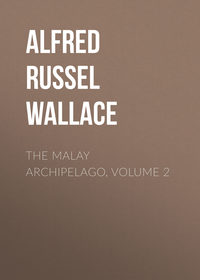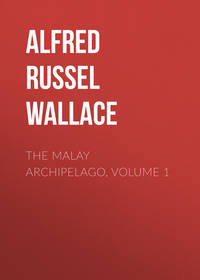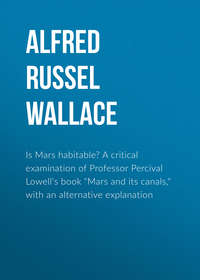 полная версия
полная версияTravels on the Amazon
Having now arrived at the height of the dry season, and the waters of the lake before mentioned being sufficiently low, the German steward informed me that he should make an excursion there to kill alligators, and I determined to accompany him. There are two ways to reach the place—overland in nearly a direct line, or round to the other side of the island in a boat and up a stream, which can be ascended to within a few miles of the lake, with which indeed in the wet season it communicates. The tide served for the boat to start about midnight, and I decided on going in it, as I thought I should thus see more of the island. The overseer was to go by land in the morning. Being roused up at midnight, I got into the canoe with three Negroes, and tried to compose myself for a nap as well as I could upon the baskets of farinha and salt with which it was loaded. It was a large clumsy canoe, and with a sail and the tide we went on pretty well; but as morning dawned we got out rather far from land into the ocean-like river, and the swell beginning to be disagreeable, I arose from my uneven couch very qualmish and uncomfortable.
However, about ten o'clock we reached the mouth of the igaripé, or small stream we were to ascend, and I was very glad to get into still water. We stayed for breakfast in a little clear space under a fine tree, and I enjoyed a cup of coffee and a little biscuit, while the men luxuriated on fish and farinha. We then proceeded up the stream, which was at its commencement about two hundred yards wide, but soon narrowed to fifty or eighty. I was much delighted with the beauty of the vegetation, which surpassed anything I had seen before: at every bend of the stream some new object presented itself,—now a huge cedar hanging over the water, or a great silk-cotton-tree standing like a giant above the rest of the forest. The graceful assaí palms occurred continually, in clumps of various sizes, sometimes raising their stems a hundred feet into the air, or bending in graceful curves till they almost met from the opposite banks. The majestic murutí palm was also abundant, its straight and cylindrical stems like Grecian columns, and with its immense fan-shaped leaves and gigantic bunches of fruit, produced an imposing spectacle. Some of these bunches were larger than any I had before seen, being eight or ten feet in length, weighing probably two or three hundredweight: each consisted of several bushels of a large reticulated fruit. These palms were often clothed with creepers, which ran up to the summits, and there put forth their blossoms. Lower down, on the water's edge, were numerous flowering shrubs, often completely covered with convolvuluses, passion-flowers, or bignonias. Every dead or half-rotten tree was clothed with parasites of singular forms or bearing beautiful flowers, while smaller palms, curiously-shaped stems, and twisting climbers, formed a background in the interior of the forest.
Nor were there wanting animated figures to complete the picture. Brilliant scarlet and yellow macaws flew continually overhead, while screaming parrots and paroquets were passing from tree to tree in search of food. Sometimes from a branch over the water were suspended the hanging nests of the black and yellow troupial (Cassicus icteronotus), into which those handsome birds were continually entering. The effect of the scene was much heightened by the river often curving to one side or the other, so as to bring to view a constant variety of objects. At every bend we would see before us a flock of the elegant white heron, seated on some dead tree overhanging the water; but as soon as we came in sight of them, they would take flight, and on passing another bend we would find them again perched in front of us, and so on for a considerable distance. On many of the flowering shrubs gay butterflies were settled, and sometimes on a muddy bank a young alligator would be seen comfortably reposing in the sun.
We continued our journey thus for several hours, the men rowing vigorously for fear of the tide turning against us before we reached our destination: this, however, happened just as we entered a narrower part of the stream. The scenery was now much more gloomy; the tall trees closed overhead so as to keep out every sunbeam. The palms twisted and bent in various contortions, so that we sometimes could hardly pass beneath, and sunken logs often lay across from bank to bank, compelling us to get out of the canoe, and use all our exertions to force it over. Our progress was therefore very slow, and the stream was every minute running stronger against us. Here was a building-place for various aquatic birds: the wood-ibis and numerous cranes and herons had their nests on the summits of the lofty trees over the water, while lower down was the station chosen by the boat-bill. There was a continual rustle and flapping of wings as these long-legged, clumsy birds flew about, startled at our approach; and when I shot one of the large wood-ibises, the confusion was at its height. Numerous kingfishers were continually passing up and down, or darting from some dead stick into the water to seize their prey.
After about two hours of very hard and disagreeable work, we reached the landing-place, where there was an old deserted cottage, and the overseer and several Negroes with horses were waiting to convey the provisions we had brought to the Lake. We immediately set off on foot over an extensive plain, which was in places completely bare, and in others thinly clothed with low trees. There could not be a greater contrast than between the scene we had just left, and that which we now entered upon. The one was all luxuriance and verdure, the other as brown and barren as could be,—a dreary waste of marsh, now parched up by the burning sun, and covered with tufts of a wiry grass, with here and there rushes and prickly sensitive plants, and a few pretty little flowers occasionally growing up among them. The trees, which in some places were abundant, did not much diminish the general dreariness of the prospect, for many of the leaves had fallen off owing to the continued drought, and those that were left were brown and half-shrivelled. The ground was very disagreeable for walking, being composed of numerous little clumps and ridges, placed so closely together that you could neither step securely upon nor between them: they appeared to be caused by the rains and floods in the wet season washing away the earth from between the roots of the grass-tufts, the whole being afterwards hardened by the excessive heat of the sun, and the grass almost entirely burnt away.
After walking over four or five miles of such ground, we arrived at the Lake just as it was getting dark. The only building there was a small shed without any walls, under which we hung our hammocks, while the Negroes used the neighbouring trees and bushes for the same purpose. A large fire was blazing, and round it were numerous wooden spits, containing pieces of fresh fish and alligator's tail for our supper. While it was getting ready, we went to look at some fish which had just been caught, and lay ready for salting and drying the next day: they were the pirarucú (Sudis gigas), a splendid species, five or six feet long, with large scales of more than an inch in diameter, and beautifully marked and spotted with red. The Lake contains great quantities of them, and they are salted and dried for the Pará market. It is a very fine-flavoured fish, the belly in particular being so fat and rich that it cannot be cured, and is therefore generally eaten fresh. This, with farinha and some coffee, made us an excellent supper, and the alligator's tail, which I now tasted for the first time, was by no means to be despised. We soon turned into our hammocks, and slept soundly after the fatigue of the day. Jaguars were abundant, and had carried off some fish a night or two before; the alligators too were plunging and snorting within twenty yards of us: but we did not suffer such trifles to disturb our slumbers.
Before daybreak I had my gun upon my shoulder, eager to make an attack upon the ducks and other aquatic birds which swarmed about the lake. I soon found plenty of them, and, my gun being loaded with small shot, I killed seven or eight at the first fire. They were very pretty little birds, with metallic-green and white wings, and besides forming good specimens, provided us with an excellent breakfast. After the first discharge, however, they became remarkably shy, so I went after the roseate spoonbills, white herons, and long-legged plovers, which I saw on the other side: they also seemed to have taken warning by the fate of their companions, for I could not get near enough for a shot, as there was no means of concealing my approach.
What is called the Lake is a long, winding piece of water, from thirty to fifty yards wide and of little depth. It is bordered with aquatic plants and shrubs, and in some parts is thickly covered with floating grass and duckweed. It is inhabited by immense numbers of the fish already mentioned, and alligators, which are so thick that there is scarcely any place where you may not stir one up. There are also great quantities of very small fish about two inches long, which I suppose serve as food for the larger ones, which in their turn are probably sometimes devoured by the alligators; though it appears almost a mystery how so many large animals can find a subsistence, crowded together in such a small space.
After breakfast the overseer commenced the alligator-hunt. A number of Negroes went into the water with long poles, driving the animals to the side, where others awaited them with harpoons and lassos.
Sometimes the lasso was at once thrown over their heads, or, if first harpooned, a lasso was then secured to them, either over the head or the tail; and they were easily dragged to the shore by the united force of ten or twelve men. Another lasso was fixed, if necessary, so as to fasten them at both ends, and on being pulled out of the water a Negro cautiously approached with an axe, and cut a deep gash across the root of the tail, rendering that formidable weapon useless; another blow across the neck disabled the head, and the animal was then left, and pursuit of another commenced, which was speedily reduced to the same condition. Sometimes the cord would break, or the harpoon get loose, and the Negroes had often to wade into the water among the ferocious animals in a very hazardous manner. They were from ten to eighteen feet long, sometimes even twenty, with enormous mis-shapen heads, and fearful rows of long sharp teeth. When a number were out on the land, dead or dying, they were cut open, and the fat which accumulates in considerable quantities about the intestines was taken out, and made up into packets in the skins of the smaller ones, taken off for the purpose. There is another smaller kind, here called Jacaré-tinga, which is the one eaten, the flesh being more delicate than in the larger species. After killing twelve or fifteen, the overseer and his party went off to another lake at a short distance, where the alligators were more plentiful, and by night had killed near fifty. The next day they killed twenty or thirty more, and got out the fat from the others.
I amused myself very well with my gun, creeping among the long grass, to get a shot at the shy aquatic birds, and sometimes wandering about the campo, where a woodpecker or a macaw rewarded my perseverance. I was much pleased when I first brought down a splendid blue and yellow macaw, but it gave me some hours of hard work to skin and prepare it, for the head is so fleshy and muscular, that it is no trifling matter to clean it thoroughly. The great tuyuyú (Mycteria Americana) was often seen stalking about; but, with every precaution, I could not get within gunshot of it. The large and small white herons were abundant, as well as black and grey ibises, boat-bills, blue storks, and ducks of several species; there were also many black and yellow orioles, and a glossy starling,—of all of which I procured specimens.
I had an opportunity of seeing the manner of curing fish practised here. They are partially skinned, and a large piece of meat cut out from each side, leaving the backbone with the head and skin attached. Each piece of meat is then cut lengthways, so as to unfold into a large flat slab, which is then slightly sprinkled with salt and laid upon a board. Other slices are laid on this, and, when the salt has penetrated sufficiently, they are hung upon poles or laid upon the ground in the sun to dry, which does not occupy more than two or three days. They are then packed up in bundles of about a hundred pounds each, and are ready for market. The bones and heads furnish a fine feast for the vultures, and sometimes a jaguar will carry them away in the night, but he prefers an entire fish if one is left in his way.
Immediately on the fish being cut up, every part of it is blackened by thousand of flies, which keep up a continual hum the whole day. In fact, the sound of animal life never ceases. Directly after sunset, the herons, bitterns, and cranes begin their discordant cries, and the boat-bills and frogs set up a dismal croaking. The note of one frog deserves a better name: it is an agreeable whistle, and, could it be brought into civilised society, would doubtless have as many admirers as the singing mouse, or the still more marvellous whistling oyster described by Punch. All night long, the alligators and fish keep up a continual plunging; but, with the grey of morning, commence the most extraordinary noises. All of a sudden ten thousand white-winged paroquets begin their morning song with such a confusion of piercing shrieks as it is quite impossible to describe: a hundred knife-grinders at full work would give but a faint idea of it. A little later, and another noise is heard: the flies, which had weighed down every blade of grass, now wake up, and, with a sounding hum, commence their attack upon the fish: every piece that has lain a few hours upon the ground has deposited around it masses of their eggs as large as walnuts. In fact, the abundance of every kind of animal life crowded into a small space was here very striking, compared with the sparing manner in which it is scattered in the virgin forests. It seems to force us to the conclusion, that the luxuriance of tropical vegetation is not favourable to the production and support of animal life. The plains are always more thickly peopled than the forest; and a temperate zone, as has been pointed out by Mr. Darwin, seems better adapted to the support of large land-animals than the tropics.
In this lake the overseer informed me he had killed as many as a hundred alligators in a few days, whereas in the Amazon or Pará rivers it would be difficult to procure as many in a year. Geologists, judging from the number of large reptiles, the remains of which are found in considerable quantities in certain strata, tell us of a time when the whole world was peopled by such animals, before a sufficient quantity of dry land had been formed to support land quadrupeds. But, as it is evident that the remains of these alligators would be found accumulated together should any revolution of the earth cause their death, it would appear that such descriptions are founded upon insufficient data, and that considerable portions of the earth might have been as much elevated as they are at present, notwithstanding the numerous remains of aquatic reptiles, which would seem to indicate a great extent of shallow water for their abode.
The alligator fat and a quantity of fish were now ready, so we prepared to return home. I determined this time to walk overland, so as to see the character of the interior of the island. I returned with the two Negroes to the ruined cottage before mentioned, so as to be ready to start the next morning for a walk of some ten or twelve miles across the campo. On our way to the hut we passed over a part which was burning, and saw the curious phenomenon of the fire proceeding in two opposite directions at once. The wind carried the fire rapidly in a westerly direction, while, at the same time, by causing the tall grass to bend over into the flames, they progressed, though at a slower rate, towards the east. The campos are set on fire purposely every summer, as the coarse grass being burnt down, leaves room for a fine crop to spring up afresh with the first rains. Near the hut I shot a large grey heron, which made us a very good supper; and we then hung up our hammocks for the night in the little dirty ruined hut, from which a short time before a jaguar had carried away a large bundle of fish.
In the morning the canoe was loaded to return, and I proceeded along a faint track homewards. The scene was generally very desolate and barren. Sometimes there was not a blade of grass for miles. Then would come a wide bed of gigantic rushes, which extends across the island nearly from one side to the other. In other places were large beds of prickly mimosas, and, at intervals, considerable tracts covered with leafless trees about which numbers of woodpeckers were busily at work. Hawks and vultures were also seen, and the great red-billed toucan (Rhamphastos Toco) flew by in an undulating course in parties of three or four. It was cloudy, and there was a good deal of wind; but at this time of the year no rain ever falls here, so I did not hurry myself on that account, and, early in the afternoon, reached the house, rather tired, but much interested with my walk. I forgot to mention that in the evening, after the alligator-hunt, the Negroes sang several hymns, as a thanksgiving for having escaped their jaws.
The next day all were busily employed boiling the fat into oil, which supplies the lamps on all Mr. C.'s estates. It has rather a disagreeable smell, but not worse than train-oil. I now went out every day with my gun about the campo, or to the clumps of wood called islands, on the banks of the small streams. The principal birds I procured were toucans, parrots, hawks, and buzzards, the red-headed manakin, and numerous small finches and fly-catchers. The mango-trees were loaded with ripe fruit, and attracted many small tanagers and paroquets. I now ate the mango for the first time, and soon got to like it very much. It is not generally eaten in Pará except by the Negroes, who seem very fond of it, to judge by the certainty with which every fruit disappeared the moment it became ripe. There seems to be scarcely an animal that is not fond of it,—cattle, sheep, pigs, ducks, and fowls, all rush to secure every fruit that falls.
Soon after Christmas we had a few showers at intervals, and the grass began to grow more greenly—a sign that the summer was nearly at an end. Some butterflies and moths now made their appearance, and the skirts of the forest were covered with passion-flowers, convolvuluses, and many other flowers. Bees and wasps also began to abound, and several aquatic birds I had not before seen made their appearance. In January, Mr. C. and his family and some visitors arrived to spend a few weeks on the island, and the time passed more pleasantly. Several of the Negroes were sent hunting, and wild ducks of various species, deer, armadillos, and fish, with beef and mutton, gave us plenty for our table. Several jaguars were killed, as Mr. C. pays about eight shillings each for their skins: one day we had some steaks at the table, and found the meat very white, and without any bad taste.
It appears evident to me that the common idea of the food of an animal determining the quality of its meat is quite erroneous. Domestic poultry and pigs are the most unclean animals in their food, yet their flesh is very highly esteemed, while rats and squirrels, which eat only vegetable food, are in general disrepute. Carnivorous fish are not less delicate eating than herbivorous ones, and there appears no reason why some carnivorous animals should not furnish wholesome and palatable food. Venison, so highly esteemed at home, is here the most dry and tasteless meat that can be had, as it must be cooked within twelve hours after it is killed.
A great deal more rain now fell, and small pools were formed in some parts of the campos. About these, plovers and other birds were to be seen wading, and a small flock of the elegant long-legged plover (Himantopus). After much difficulty I succeeded in killing three or four of them. The curious razor-bill was also often seen skimming over the water, and the great tuyuyú occasionally approached near the house, but always kept out of gunshot, and although I crawled along prostrate to get within reach of him, he always found me out in time for his own safety.
As I was getting scarcely any insects here, and the birds were not very valuable, I determined to return to Pará with Mr. C, who was going to pass a week at his other estate on the island of Marajó by the way.
The journey across in Mr. C.'s schooner occupied but a few hours, and we then entered a river which leads up to the estate called Jungcal. On arriving we found a mud-walled house not quite finished, which was to be our abode while we stayed. At the back of the house stretched out, as far as the eye could reach, a perfectly flat plain or campo, on which fed numerous herds of cattle. Round about were "corrals" fenced in for collecting the cattle, and huts for the "vaqueiros," or cowherds; and along the banks of the river were patches of wood, and thickets of a great prickly bamboo. About the campo were numerous marshes and narrow streams or ditches, which contained many curious and pretty aquatic plants. Mosquitoes were plentiful, and annoyed us much in the evenings, when we wished to enjoy the cool air in the verandah.
The Negroes and Mulattoes employed about the estate were mostly fine young men, and led a life of alternate idleness and excitement, which they seemed to enjoy very much. All their work is done on horseback, where they showed to great advantage, only wearing a pair of trousers and a cap with a tassel, displaying the fine symmetry of their bodies. We were much amused by seeing them bring in the cattle, driving them into the corral, or using the lasso when one was to be slaughtered. For this purpose they generally get two lassos on the head or legs of the animal, the end of each of which is held by a horseman. The "matador" then goes up and hamstrings the poor animal with a cutlass. This quite disables him: in vain he tries to rise on his legs and run at his merciless assailants, till the cutlass is thrust into his neck and deep down into his chest. He is hardly dead when he is skinned and cut up, and the dogs and vultures rush to feast upon the pool of blood and entrails which mark the spot. The sight was a sickening one, and I did not care to witness it more than once.
There were few birds or insects worth catching, and it was not the time of the year for the spoonbills and ibises, which have a building-place near, and arrive in immense numbers in the month of June.
After spending about a week at Jungcal we embarked to return to Pará. A cattle-canoe was to accompany us, and we were to take some of the animals on board our schooner. We started early in the morning, and in about an hour arrived at a corral on the river-side, where the cattle were. The boat was anchored about twenty yards from the shore, and a block and fall rigged to haul them up on deck. In the corral were twenty or thirty wild cattle, which had been kicking and plunging about till they had filled the place with mud knee-deep. Several men with lassos were trying to secure them, by throwing the loops over their horns. The cattle used all their endeavours to avoid being caught, by shaking their heads and throwing the cords off before they could be pulled tight. Each man kept his attention directed to one animal, following it about to every part of the corral. After a few attempts he generally succeeded in getting the loop fixed over the horns, and then half a dozen came to his assistance, to get the ox out of the corral into the water. This was done by some pulling at the lassos, while others poked and beat the animal with long poles, which would so irritate it that it would roll itself on the ground and rush at the men with all its force. At this they did not seem to be much alarmed, but jumped on one side or sprang on to the rails of the corral, and then immediately returned to the attack. At length the creature would be either pulled or driven into the water, and the end of the rope being quickly thrown on board the canoe, the ox was towed up to the vessel's side. A strong rope was then noosed over its horns, by which it was lifted into the air, struggling as helplessly as a kitten held by the skin of its neck; it was then lowered into the hold, where, after a little disturbance, it soon became quiet. One after another were put on board in this manner, each offering something interesting, arising from the fury of the animal or the great skill and coolness of the vaqueiros. Once or twice the lasso, which is made of twisted hide, was thrown short of the canoe, and I then admired the rapidity with which an Indian plunged head foremost after it, not stopping even to take the cap from his head; he then gave the rope to those on board, and mounting on the back of the swimming ox, rode in triumph to the canoe.











